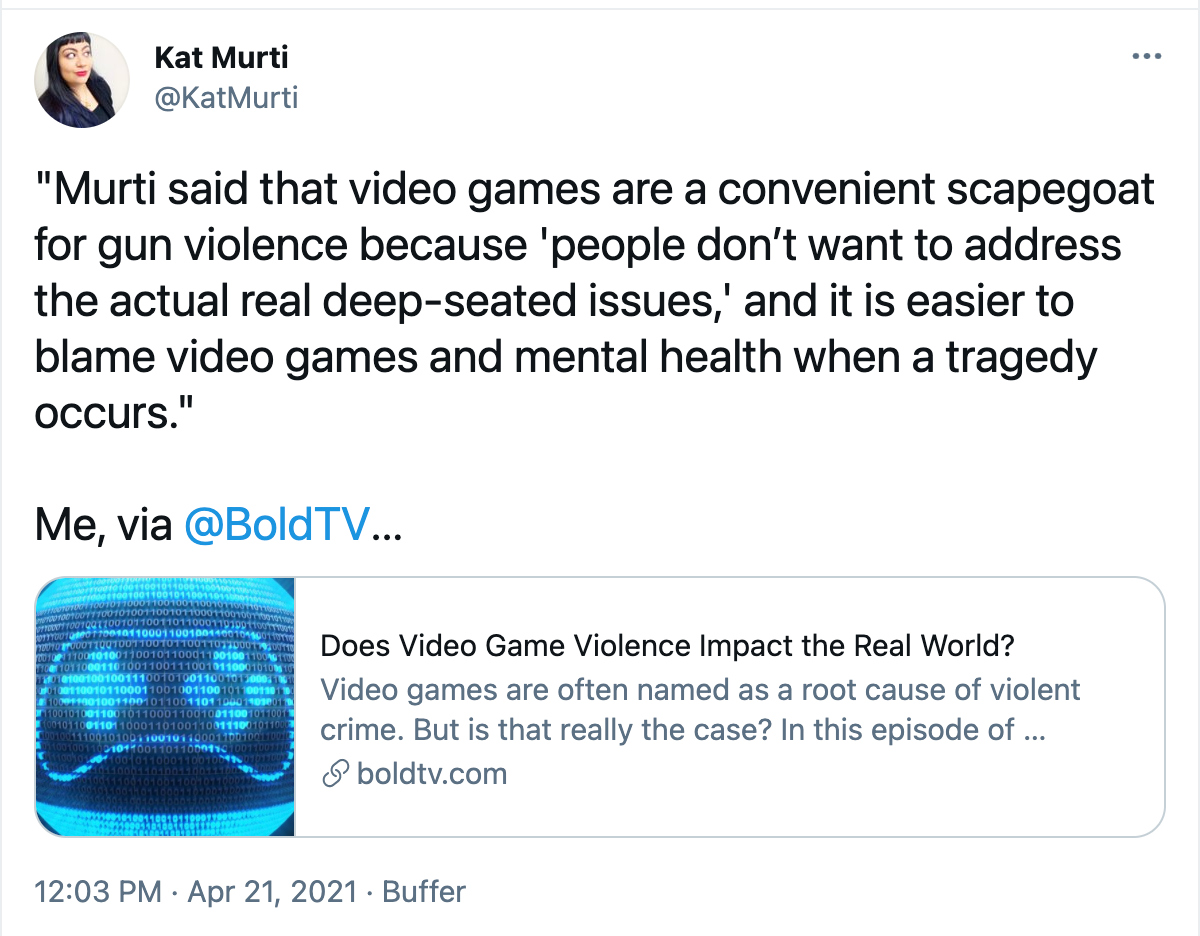Violent video games may make a convenient scapegoat, but do not lead to violence or aggression, according to 28 different studies analyzing data gathered from more than 21,000 young people around the world.
In fact, video games may actually reduce real-world aggression, allowing people to channel their feelings into gaming consoles instead of other people. According to one 2016 study, general societal violence decreased in the weeks after the release of popular video games.
Yes, it is certainly true that several individuals who have committed violent acts in recent years have also been video game players, but, considering that 67% of Americans play video games (a number that continues growing year-over-year), that shows no more causation than, say, arguing that owning a pet—which 67% of American households do—causes violence.
Instead of looking for an easy answer, we need to address the core ideological and psychological causes of real-world violence—particularly racism and sexism, particularly misogyny—and find an actual solution to society’s ills
“Pointing to something like a video game and saying ‘That’s what’s causing this’ is so much easier. Politicians are able to pass a band-aid and say, ‘Hey, here’s this and we’re done’ and not have to talk about what’s actually causing the violence,” says Feminists for Liberty’s Kat Murti in a BoldTV Millennial Minute debate featuring Libertas Institute Tech & Innovation Analyst James Czerniawski, moderated by BoldTV’s Julia Sun.
The interview also inspired a short article, which you can read here.

